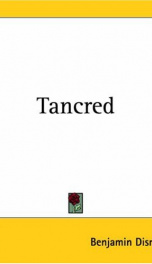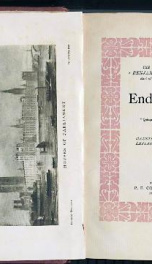Lord George Bentinck

1905. Known as a dandy, a novelist, a brilliant debater and England's first and only Jewish prime minister, Disraeli (Earl of Beaconsfield) is best remembered for bringing India and the Suez Canal under control of the crown. The life of Lord George Bentinck is in a sense the most serious of Disraeli's works. It was composed at a time when he had abandoned fiction for the more sternly engrossing pursuit of politics. Bentinck is best remembered for his betrayal over the Corn Laws, when he became the most vicious critic of the Prime Minister. Unable to moderate his tone thereafter, his leadership of the Protectionists in the House of Commons became something of an embarrassment to the party, who deposed him from the leadership for his support of Jewish emancipation. Contents: State of Parties in the House of Commons at the Close of 1845; Four Meetings of the Cabinet in One Week; 1846-Opening of Parliament; Proposition to Repeal the Corn Laws; Formation of the Protectionist Party; Second Reading of the Bill to Repeal the Corn Laws; State of Ireland; The Coercion Bill; Remedial Measures for Ireland; Easter; Critical Position of the Government; Third Reading of the Corn Bill; Reciprocity; The Protectionist Party Resolve to Oppose the Coercion Bill; The Canning Episode; Overthrow of the Peel Cabinet; Character of Sir Robert Peel; The Sugar Bill-Progress and Reaction; Irish Railways; 1847-The Irish Famine; The Bank Charter Act; Dissolution of Parliament; The Panic; The Jewish Question; 1848-Relinquishment of the Leadership of the Protectionist Party by Lord George Bentinck; The Sugar and Coffee Planting Committee; Foreign Politics-Close of the Session 1848; and The Last Chapter. See other titles by this author available from Kessinger Publishing.
Info about the book
Series:
Unknown
ISBN:
1112503943
Rating:
4.5/5 (4)Your rating:
0/5
Languge:
English
Users who have this book
Users who want this book
What readers are saying
What do you think? Write your own comment on this book!
write a commentif you like Lord George Bentinck try:
Do you want to exchange books? It’s EASY!
Get registered and find other users who want to give their favourite books to good hands!














